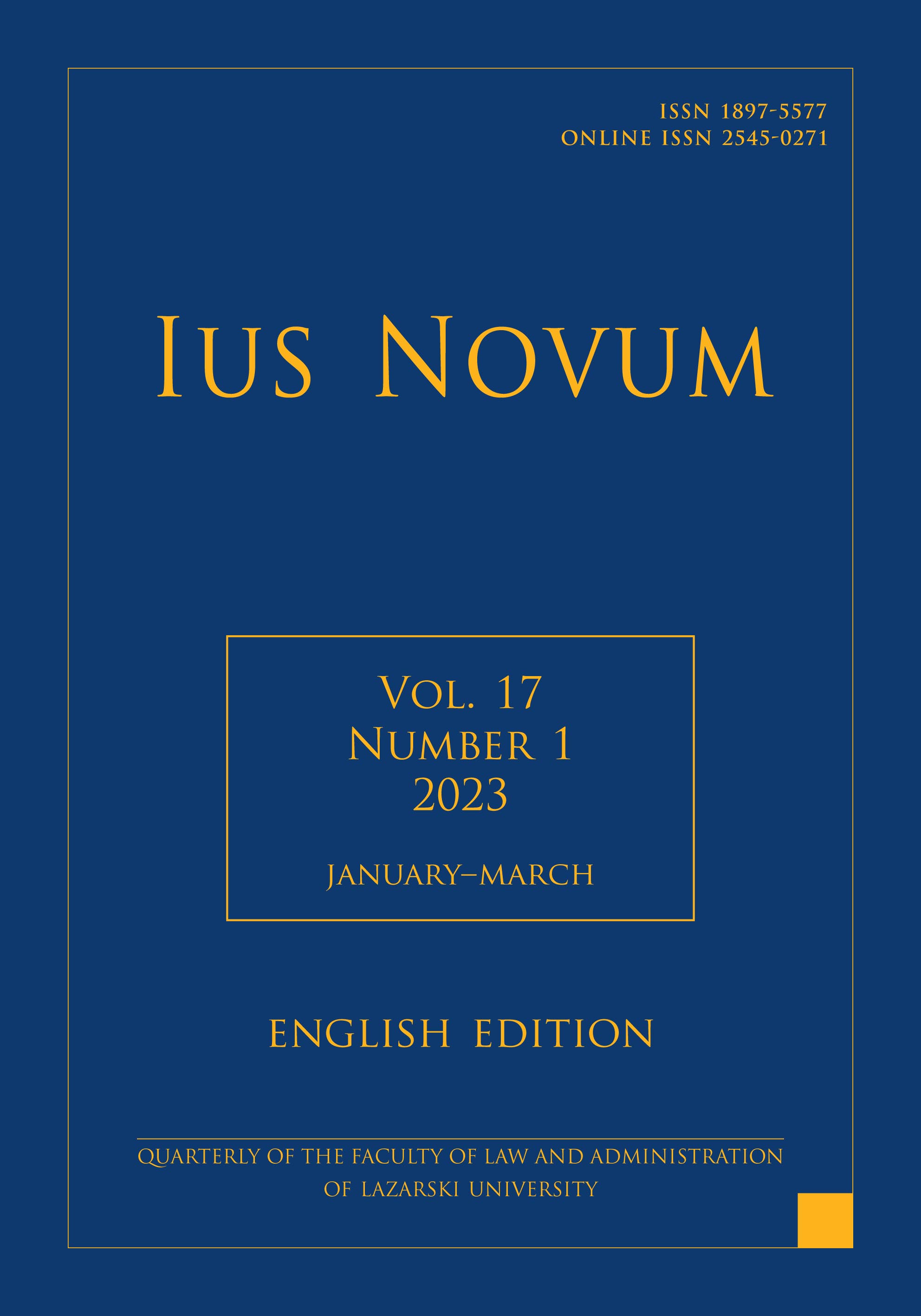Abstrakt
The purpose of the article is to analyse possible grounds, within the criminal sphere, for legalisation of behaviour involving damage to someone else’s property motivated by the desire to save a child or an animal left in a locked warming car. It is quite common to treat this type of event as one matching the features of the state of superior necessity. However, such an approach may raise some doubts of a dogmatic nature. From the point of view of the statutory shape of the existing countertypes, one can look for the possibility of assuming in such cases (when the owner of the damaged property and the perpetrator of leaving a living creature in such conditions is the same person) the occurrence of an assault justifying, after meeting all the required conditions in the form of directness, lawlessness and reality, taking teps within the right to necessary defence. The adoption of such a concept has its own tangible practical significance, as it makes it unnecessary to refer to the principle of subsidiarity and proportionality, which guarantees broader protection from criminal liability for those who damage other people’s property in order to take out a living creature left in a locked car in a situation of danger to its life or health.
Bibliografia
Andrejew, I., Polskie prawo karne w zarysie, Warszawa, 1983.
Bachmat, P., ‘Instytucja obrony koniecznej w praktyce sądowej i prokuratorskiej’, Prawo w Działaniu, 2008, No. 3.
Filar, M., Berent, M., in: Kodeks karny. Komentarz, Filar, M. (ed.), 5th edition, Warszawa, 2016.
Góral, R., Obrona konieczna w praktyce, Warszawa, 2011.
Krukowski, A., Obrona konieczna na tle polskiego prawa karnego, Warszawa, 1965.
Lachowski, J., in: Konarska-Wrzosek, V. (ed.), Kodeks karny. Komentarz, 3rd edition, Warszawa, 2020.
Marek, A., in: Kodeks karny. Komentarz, 5th edition, Warszawa, 2010.
Marek, A., Obrona konieczna w prawie karnym, Warszawa, 1979.
Marek, A., Obrona konieczna w prawie karnym. Teoria i orzecznictwo, Warszawa, 2008.
Marek, A., Satko J., Okoliczności wyłączające bezprawność czynu. Przegląd problematyki. Orzecznictwo (SN 1918-99). Piśmiennictwo, Kraków, 2000.
Mozgawa, M., in: Kodeks karny. Komentarz aktualizowany, Mozgawa, M. (ed.), LEX/el., 2022.
Mozgawa, M., in: Prawo karne materialne. Część ogólna, Mozgawa, M. (ed.), Warszawa, 2016.
Mozgawa, M., ‘Obrona konieczna w polskim prawie karnym (zagadnienia podstawowe)’, Annales Universitatis Mariae Curie-Skłodowska, Lublin, 2013, No. 2.
Świda, W., Prawo karne, Warszawa, 1978.
Wolter, W., Nauka o przestępstwie, Warszawa, 1973.
Zoll, A., in: Wróbel, W., Zoll, A. (eds), Kodeks karny. Część ogólna. Tom I. Część I. Komentarz do art. 1–52, 5th edition, Warszawa, 2016.
Zoll A., Okoliczności wyłączające bezprawność czynu, Warszawa, 1982.

Utwór dostępny jest na licencji Creative Commons Uznanie autorstwa – Użycie niekomercyjne – Na tych samych warunkach 4.0 Międzynarodowe.

